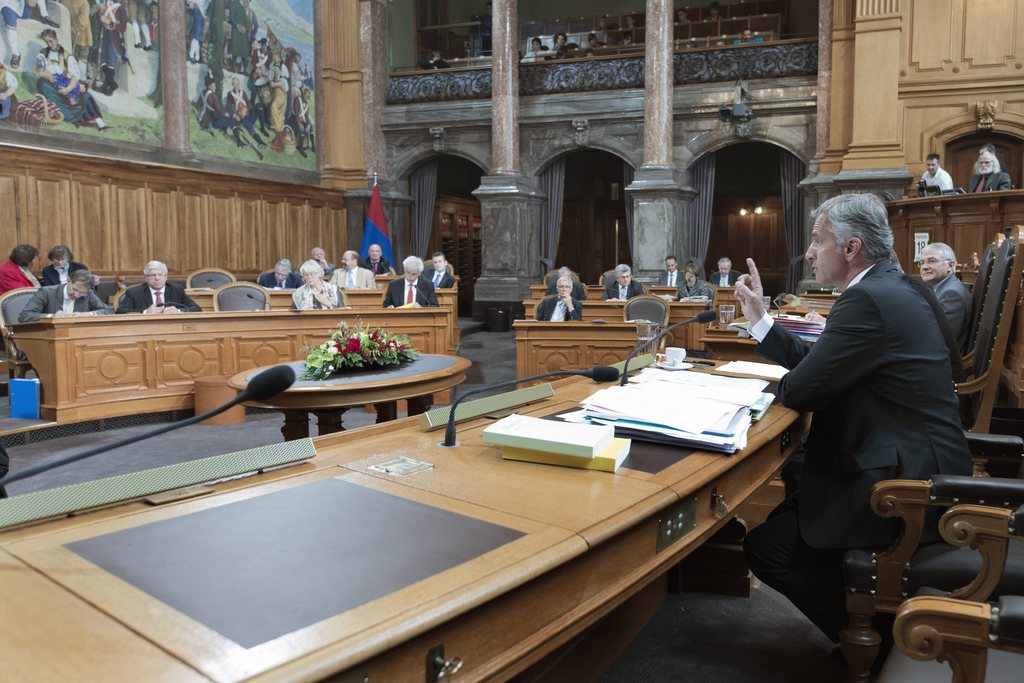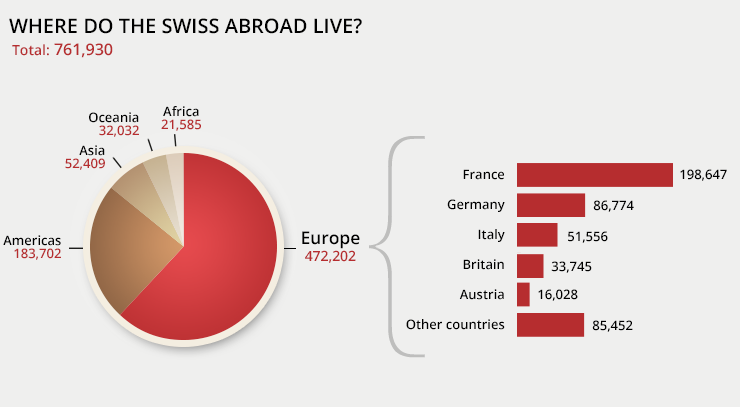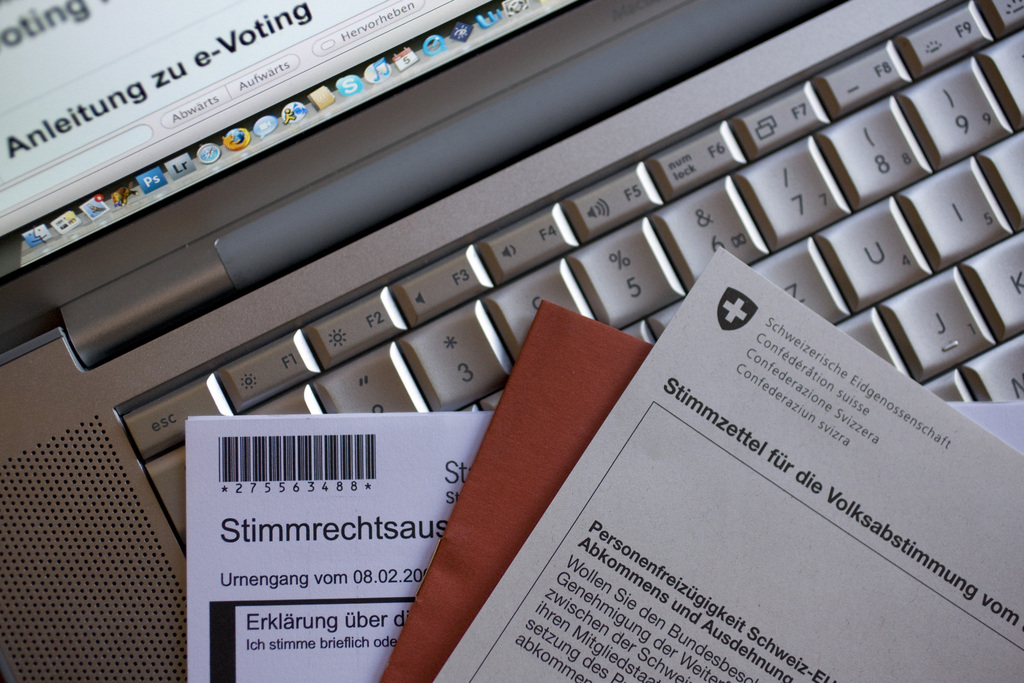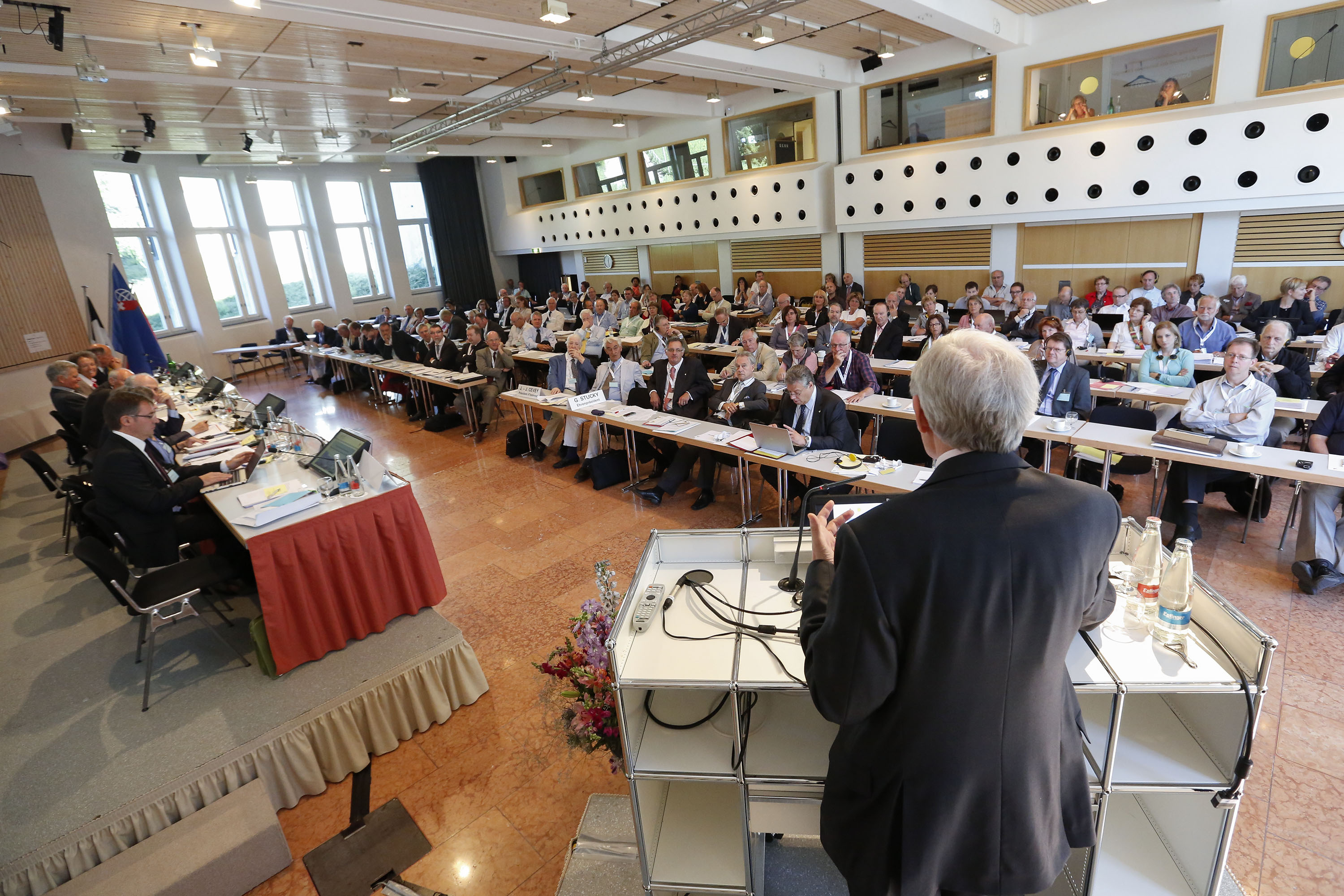E-mails to ease election to expatriate assembly

Parliament has backed moves to share expatriates’ emails as part of reforms to the election of the Council of the Swiss Abroad – this despite concerns over data protection.
The proposal – unanimously endorsed by the Senate on Wednesday – seeks to make the Council – the executive arm of the Organisation of the Swiss Abroad (OSA) – more transparent.
The motion mandates the government to cooperate with the OSA, allowing the organisation to approach individual expatriates by e-mail, but outlines that it should not violate the rules on data protection.
The move is aimed at an election reform of the assembly representing the interests of the more than 700,000 expats around the world.
The other parliamentary chamber, the House of Representatives, had passed the proposal in June.
OSA director-elect Ariane Rustichelli has welcomed the parliamentary motion.
“The decision by the Senate is a step in the right direction. It will allow the introduction of direct elections of members to the Council of the Swiss Abroad over the internet.”
Rustichelli added that a number of questions remained to be solved, including the role of the council with directly elected members, to be discussed when parliament tackles a proposal for a new law on expatriate matters.
Gerhard Brügger, head of the foreign ministry’s consular directorate, said practical options for a cooperation would be evaluated with the expatriate organisation.
“We will sit at a table to analyse the situation together. There is no immediate time pressure, the next general elections to the Council of the Swiss Abroad are scheduled for 2017.”
The assembly consists of up to 140 members of Swiss clubs and associations around the world as well as representatives of domestic institutions and organisations, including parliamentarians and the foreign ministry.
The delegates from abroad are elected for a four-year term.
The council is the executive arm of the Bern-based Organsation of the Swiss Abroad (OSA).
Clarifications
During the parliamentary debate the speaker of the senate’s foreign committee Ivo Bischofberger came out in favour of reforming the council’s election procedure, saying the current method lacks transparency, undermining the legitimacy of the panel.
He was backed by Filippo Lombardi, the sponsor of a special law encompassing all expat issues.
For his part, Foreign Minister Didier Burkhalter reiterated reservations by the cabinet about violations of data protection if the OSA were to get direct access to addresses of registered Swiss citizens living abroad.
“In principle we are in favour of the parliamentary proposal, but we disagree on the form of cooperation,” he told the Senate.
Having won assurances by proponents of the motion that they were not insisting on a direct access to the e-mail addresses of expats, Burkhalter later agreed to work towards a solution.

More
Swiss citizens live in all corners of the world
Criticism
Criticism of the election procedure has been rife among expatriates, notably in neighbouring France, home to the biggest Swiss Abroad community.
A seat in the expat council leadership remained vacant following a bitter dispute at the latest council meeting held in Davos in August.
Council members agree that the panel has a problem of democratic legitimacy with the current vote system as most Swiss expatriates do not belong to an official Swiss association.
Outgoing OSA director, Rudolf Wyder, has said it is necessary to expand the voting base. But he also pointed out that the current system, delegating the organisation of elections to different national expat associations, ensures a particular closeness to local reality.
E-vote
The government has pledged to introduce e-voting for the entire expatriate community by the 2015 parliamentary elections.
The Federal Chancellery on Monday confirmed it would continue trials with online voting despite criticism by a group of younger parliamentarians. They said the technology used for the ongoing trials lacked the necessary security measures and referred to an attack by computer hackers earlier this year.
The authorities have downplayed the potential dangers, saying the government would proceed with the test, giving security concerns priority over a speedy introduction of e-voting.
The OSA said it agreed that security was key for e-voting. It expressed confidence in the government policy on the issue.

In compliance with the JTI standards
More: SWI swissinfo.ch certified by the Journalism Trust Initiative



You can find an overview of ongoing debates with our journalists here. Please join us!
If you want to start a conversation about a topic raised in this article or want to report factual errors, email us at english@swissinfo.ch.